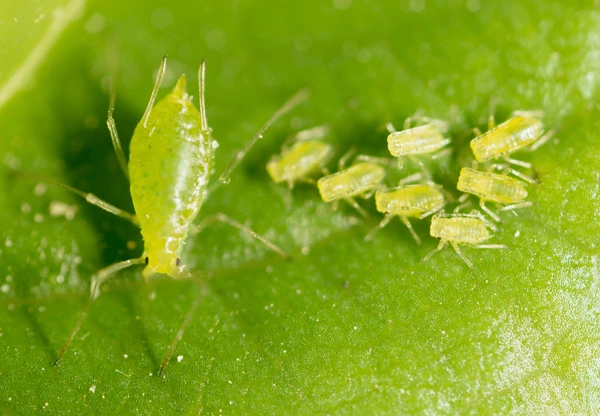Eco-Friendly Methods for Controlling Aphid Infestations
Aphids are notorious for their rapid reproduction and potential to cause significant damage to a wide array of plants, from delicate houseplants to mature garden specimens. Their feeding habits not only stunt plant growth but can also spread harmful viruses and lead to developmental issues in plants. Addressing aphid infestations with eco-friendly methods is essential for maintaining a healthy garden while minimizing environmental impact. Here’s a comprehensive guide to effective and sustainable aphid control strategies.
Understanding Aphids and Their Impact
Aphids are small, soft-bodied insects that feed on plant sap, primarily targeting young shoots and leaves. They can rapidly colonize gardens and severely impact crops such as cucumbers, cabbages, legumes, and squash. The presence of aphids often results in slowed growth, reduced fruit production, and potential plant death.
Eco-Friendly and Safe Control Methods
1. Water Spraying
- Method: Use a strong jet of water to dislodge aphids from plants. This technique is particularly effective on plants with tough, resilient leaves.
- Benefits: Regular water showers help remove aphids and prevent them from climbing back up, especially since ants often aid aphid movement.
- Frequency: Apply regularly, especially after heavy rains or if aphid populations seem to rebound.
2. Soap Solution
- Method: Mix 4-5 tablespoons of dish soap or liquid hand soap in 1 liter of water. Spray the mixture onto infested plants.
- Benefits: The soap solution breaks down the aphids’ waxy coating, leading to suffocation.
- Caution: Use unscented soap to avoid attracting additional pests and test on a small plant area first to ensure no damage occurs.
3. Herbal and Plant Infusions
- Garlic Spray
- Preparation: Crush a large bulb of garlic and steep it in 1 liter of boiling water. Cool and strain before use. Adding a small amount of soap enhances adhesion.
- Benefits: Garlic acts as a natural repellent for aphids and other pests.
- Tobacco Infusion
- Preparation: Soak a cup of tobacco leaves or cigarette butts in 5 liters of hot water for 24 hours. Strain before use.
- Benefits: Tobacco contains nicotine, which is toxic to aphids.
- Caution: Avoid using this spray immediately before harvest due to potential residual effects.
- Citrus Peel Brew
- Preparation: Boil chopped dried citrus peels in 1 liter of water for 10 minutes. Dilute this concentrate in 10 liters of water.
- Benefits: Citrus oils act as natural insecticides and are effective against aphids.
Proactive Measures and Preventive Practices
1. Attracting Beneficial Insects
- Beneficial Predators: Encourage the presence of natural aphid predators such as ladybugs, lacewings, and birds in your garden.
- Benefits: These predators help manage aphid populations without the need for chemical pesticides.
2. Companion Planting
- Repelling Plants: Integrate plants like calendula and lavender that naturally repel aphids or attract their predators.
- Benefits: Companion planting helps create a balanced ecosystem, reducing aphid infestations and promoting plant health.
Additional Tips for Aphid Management
- Regular Monitoring: Keep a close eye on your plants for signs of aphid activity and address infestations promptly to prevent them from spreading.
- Early Intervention: The sooner you act against aphid infestations, the more effective your control methods will be.
By employing these eco-friendly techniques and proactive strategies, you can effectively manage aphid populations while maintaining a healthy, thriving garden. Regular monitoring and timely intervention are key to keeping your plants healthy and productive without resorting to harmful chemicals.

